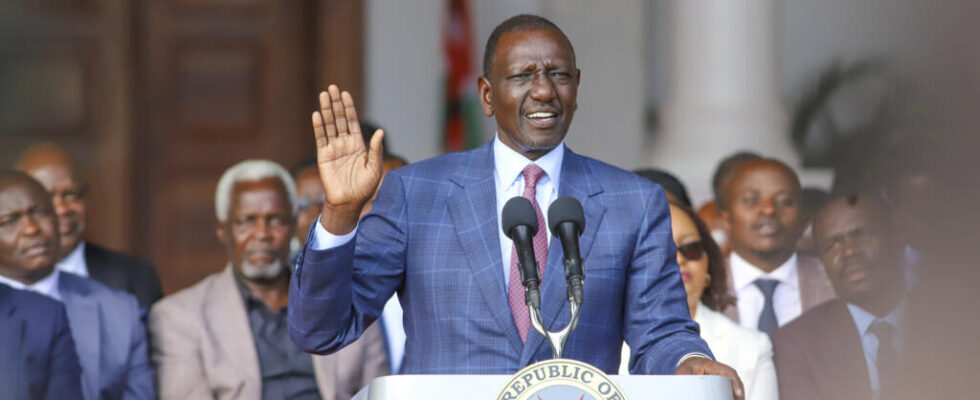For two hours on Sunday evening, June 30, Kenyan President William Ruto answered questions from three journalists from major Kenyan media. At the heart of the discussion, the anti-government protest which has shaken the country over the past two weeks. Tuesday June 25, a demonstration with several tens of thousands of people turned into a bloodbath, with the police firing live ammunition. At least 30 people were killed according to the NGO Human Rights Watch, at least 22 according to the official human rights body.
2 min
With our correspondent in Nairobi, Albane Thirouard
“ Your Excellency, do you have blood on your hands? ? ” This is the question that a journalist asked the President William Ruto. After recalling the results of the demonstrations, but also the numerous cases of kidnappings of activists denounced by human rights organizations.
“ I don’t have blood on my hands. According to figures from security agencies, 19 people have lost their lives. It is unfortunate. As a democracy, this should not be part of our conversation. The equivalent of 17 million euros of material damage was caused. The office of the President of the Supreme Court was set on fire. The town hall was set on fire. Parliament was set on fire. Every life that was lost must bother us all, starting with me “, defended the Kenyan head of state.
Promise of budgetary restrictions
Civil society gives a higher figure than 19 killed. Investigations will be carried out, President Ruto said. Faced with criticism of his administration’s opulence, he promised budgetary restrictions. Starting with the suspension of funding for highly contested positions, such as that of the first lady.
On social networks, reactions have poured in. Some deplore the emphasis placed by the head of state on material losses rather than human ones. Still others emphasize their lack of confidence in the president’s words. Kenyans no longer associate you with the truth », insisted a journalist facing William Ruto, who appeared destabilized on several occasions. This weekend, several activists rejected his call for a national dialogue.
Read alsoTensions in Kenya: “If you have good growth but your currency is devalued, the situation is untenable”
